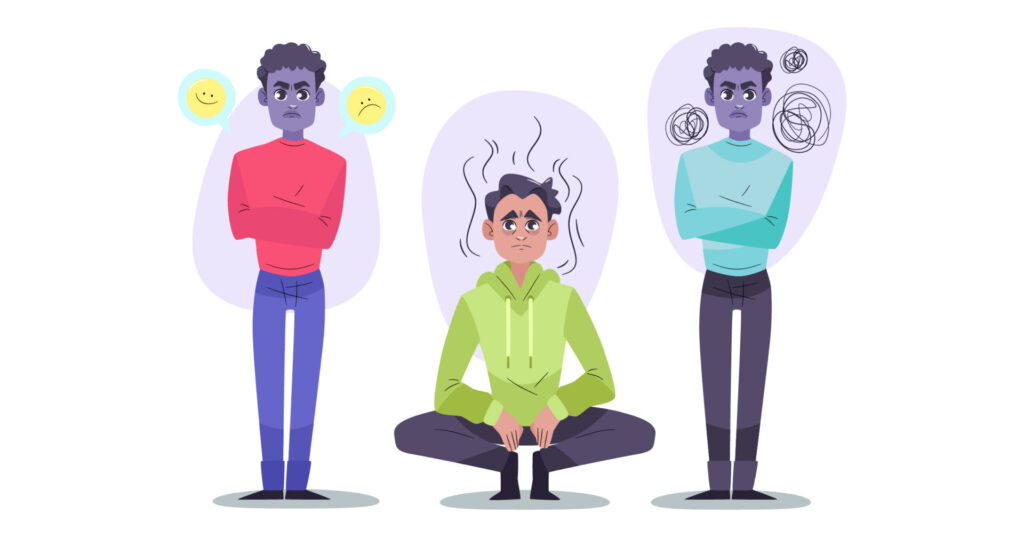Although we talk about mental health for everyone, we forget that it’s for men too. Regardless of how far our technology advances, our culture doesn’t accept men to have problems or rant about them openly. Throughout their lives, men are taught to be strong and to be in control of their emotions. They feel that showing vulnerability would lead to questions about their masculinity.
According to the research conducted by the Indian Council of Medical Research (ICMR), one in seven Indians is affected by mental health issues. In 2017, nearly 197.3 million Indians experienced mental health problems. 45.7 million people were found to be affected by depression and 44.9 million people were affected by anxiety disorders.
When it comes to men’s struggles or hardships, they are often overlooked and told to be strong in hard times rather than to be weak. It has been society’s expectation that men are breadwinners for their families and this burden is too heavy for them. Men are mostly stressed due to financial issues and work-related issues.
Everyone is uncomfortable talking openly about mental health, and men are no exception. They often assume that talking about their problems would be too bothersome for others, so they believe that they can deal with them on their own. Men often resort to drug and alcohol addiction as coping mechanisms and try to overcome their mental health issues, increasing the likelihood of them becoming depressed or worsening their physical or mental health.
According to WHO, India ranks third in suicide rates in the region after Lesotho and the Republic of Korea. The suicidal rate is higher these days despite there being so many organizations or helplines that can assist humans online and offline, and men are more likely to commit suicide in comparison to women according to statistics.
There are a few signs that someone may be struggling:
- Withdrawal or stop communicating with family and friends.
- Changes in appetite.
- Sleep disturbances
- Feeling hopeless, guilty, unworthy, etc.
- Lack of energy.
- Overthinking or unable to control worrying.
- Suicidal thoughts.
How to look after your mental health:
The easiest way to take care of your mental health is to express your feelings, share what’s bothering you, and ask for help from your primary caregivers or friends. Although one may feel shy and awkward, one can always feel good after opening up to trusted people. You may find it difficult to express yourself to others when certain things are bothering you. Try journaling, which means penning down what’s bothering you. Keeping a journal or even writing about stressful events will help you relax. Maintaining a healthy diet and exercising regularly are the best ways to cope with daily stressors and keep you active and mindful. When working, taking care of the family, or doing house chores, take breaks even if it is five minutes. keep Changing your routine, sticking to a particular schedule causes boredom.
Finally, if nothing seems to be in your power, you should not hesitate to ask for help from a mental health professional. Doing so does not make you weak or vulnerable.
Read more :
Embrace Gratitude and Alter Your Perspective on Life.
Understanding Somatic Symptoms and Related Disorders






One Response
Woah! I’m really enjoying the template/theme of this website. It’s simple, yet effective. A lot of times it’s very difficult to get that “perfect balance” between superb usability and visual appearance. I must say that you’ve done a amazing job with this. In addition, the blog loads extremely fast for me on Chrome. Exceptional Blog!